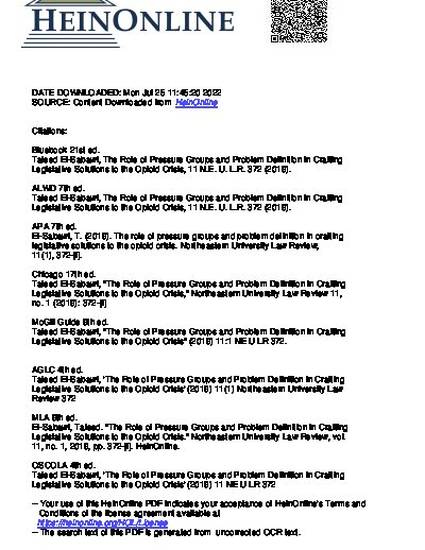
Organized interest groups and federal administrative agencies have historically been influential in defining problem drug use during nationwide crisis. As such, the manner in which these pressure groups defined the problem may have influenced or, at least, provided support for legislators’ decisions to shy away from a criminal justice approach and towards acceptance of a more “health-oriented” — one that did not comprehensively address demand factors or demonstrate a commitment to reforming U.S. drug policy to meet international standards of best practice. In an effort to provide a snapshot of what such involvement may look like, this article explores the types of narratives used by pressure groups to define the opioid crisis in the congressional hearing discourse prior to the enactment of CARA. In order to do this, I analyzed 144 congressional hearing testimonies discussing the opioid crisis and identified the most common narratives used to explain the causes of the opioid crisis. I also identified the types of legislative proposals supported in these narratives.
